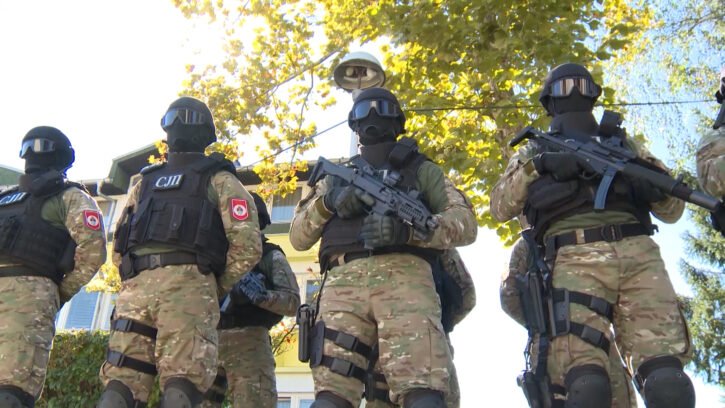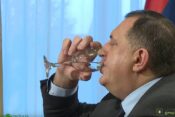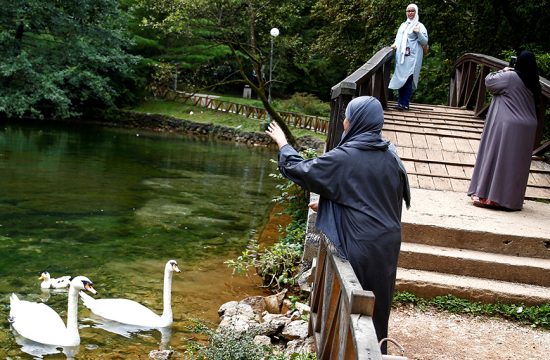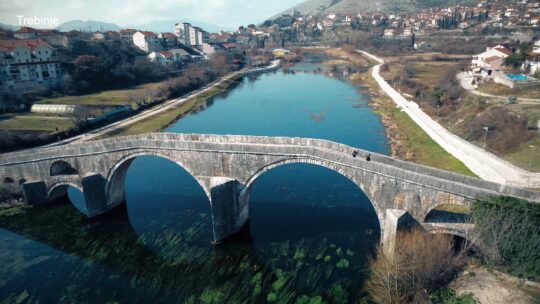
The EU Delegation in Bosnia said on Monday they are concerned over proposed amendments to the Law on Public Order and Peace of the Serb-dominated Republika Srpska (RS) entity and warn that the Law should not fringe on fundamental rights and freedoms of individuals and groups.
“We are aware of the concerns raised regarding proposed amendments to the RS Law on Public Order and Peace, and we are closely monitoring the matter,” the Delegation said. “We underline that any amendments to this Law should not limit freedom of expression and freedom of assembly.”
Authorities in Bosnia’s Serb-majority region want to change the law regulating public order so that persons recording and taking photos of police would face fines or 60 days in jail, a provision that worries journalists and human rights NGOs.
The Government of one of the two semi-autonomous entities within Bosnia and Herzegovina has on March 28 approved the draft and advanced it to the RS National Assembly for adoption.
According to the changes, persons who “disturb public officials with unauthorised photographing or recording, while officials perform their duty” will either have to pay a fine ranging from 500 to 1,500 marks (some € 250 – € 750) or spend 60 days behind bars.
The Delegation urged the RS authorities to reconsider the proposed amendments in order to align them with EU and international standards and stand ready to assist in this regard.
The EU is concerned with the fact that the proposed amendments, if adopted, may adversely affect the exercise of fundamental rights, in particular, freedom of expression and freedom of assembly, the Delegation said.
But the law does not stop there. It also introduces a reserve police unit which is a direct challenge to the Dayton Peace Agreement, which ended the 1992-1995 Bosnian war, that also regulates the number of police units in both entities.
The RS Interior Minister, Dragan Lukac, said last month that the unit would be composed of youths who would be summoned only when necessary and would have the same competencies as active police officers engaged in police duties.
But Bosniak officials fear that this unit would only serve to create further division in the society and would potentially be used in case of secession of this entity – something that is very much supported by the Bosnian Serb leader Milorad Dodik who is also the leader of the strongest RS party, the Alliance of Independent Social Democrats. The same party the RS Interior Minister comes from.
The main Bosniak party in the country, the Democratic Action Party (SDA), warned on Monday that reserve units would harm the balance of forces between entities, and adversely affect the security situation in Bosnia.
“The announcement comes at a time when the Bosnian Serb leader Milorad Dodik was drawing borders of Greater Serbia at the expense of Bosnia and Montenegro,” the SDA wrote in their public statement.
They recalled that all those who drew borders and formed reserve units during the ’90s ended up in jail after the UN Court convicted them of war crimes.
“The RS authorities must also know that should they insist on forming the reserve police unit, they would receive a definite and resolute response from the Bosniak-Croat shared entity of the Federation of Bosnia and Herzegovina (FBiH) and its cantons, who would form their own reserve units and buy additional police equipment,” the party warned.
They added that the FBiH entity has a lot bigger economic and every other capacity regarding the purchase of police equipment and engagement of additional forces.
It would, therefore, be best if no side should head into this process, the party said, calling on the RS authorities to stop all activities which would cause instability in the country.





